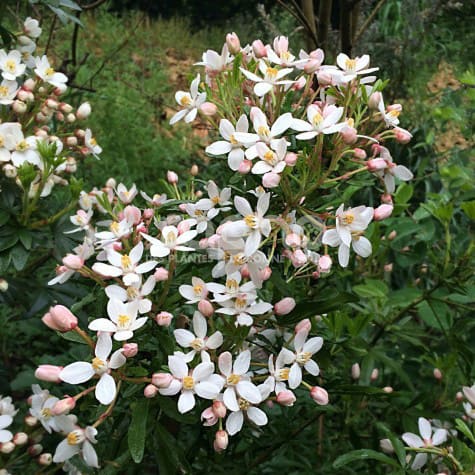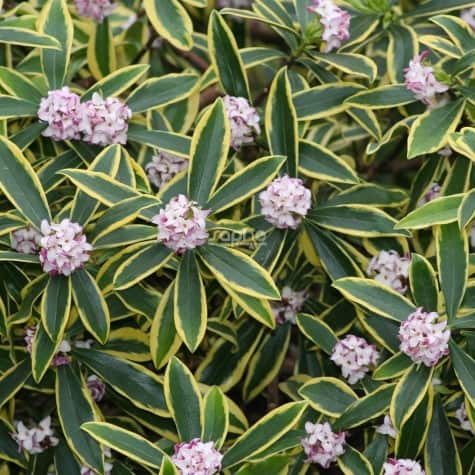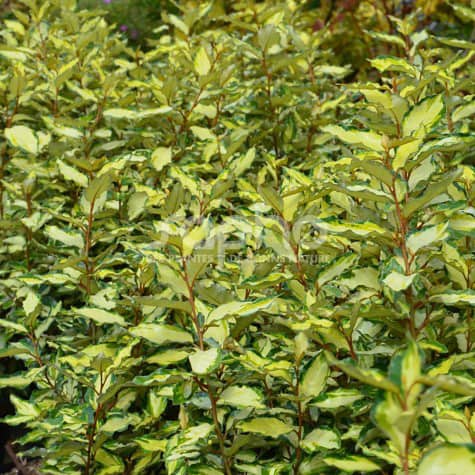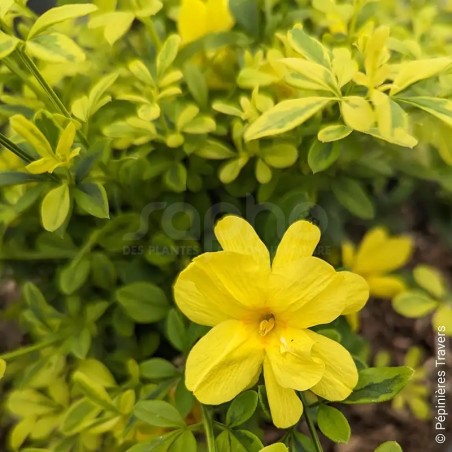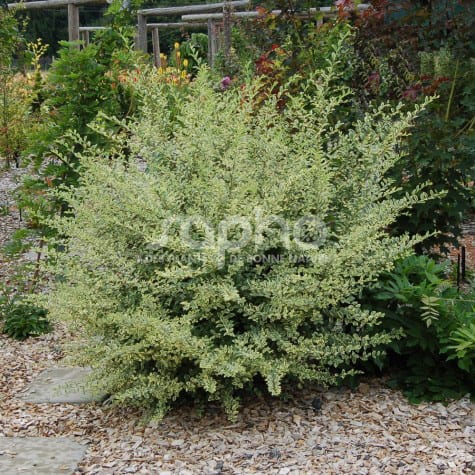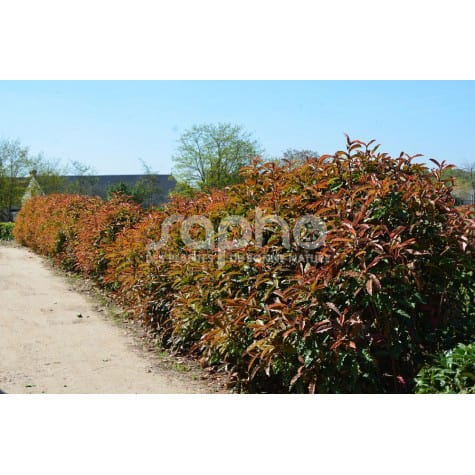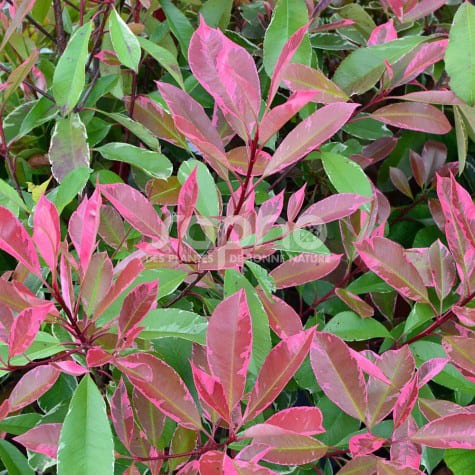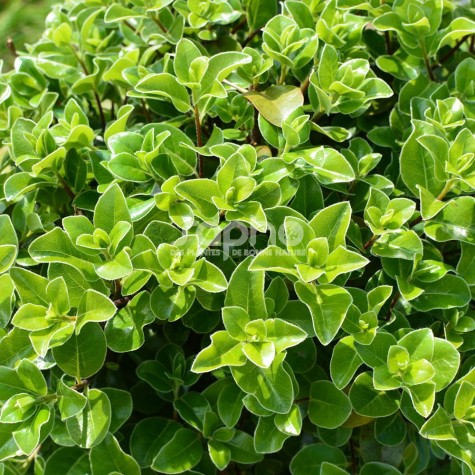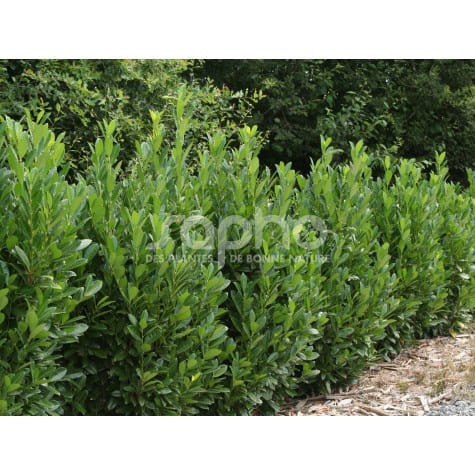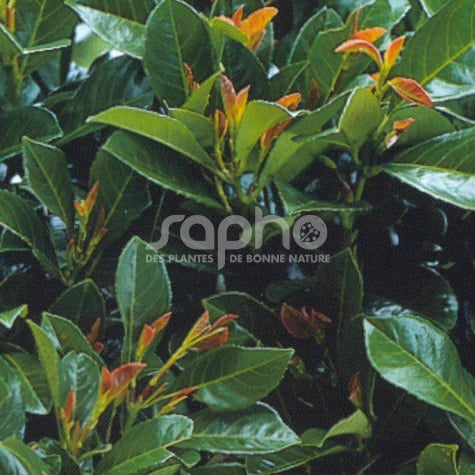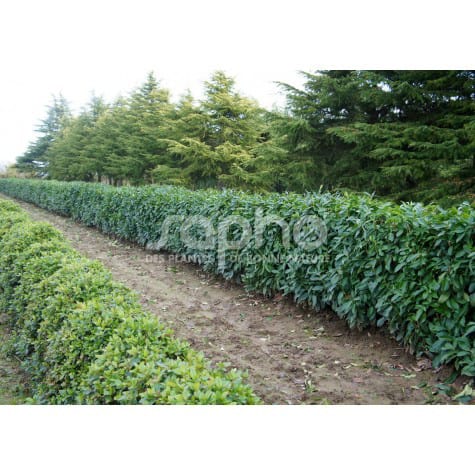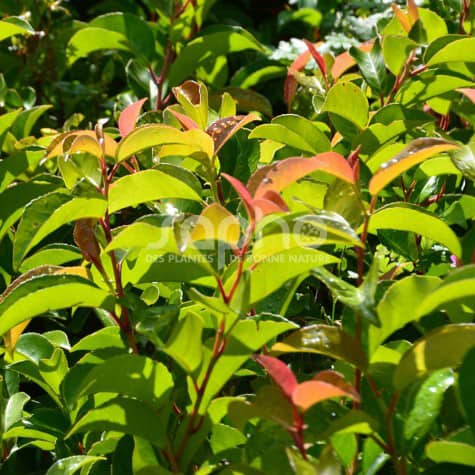Pink buds and white flowers :an attractive two-tone effectThis selection has been chosen for its original combination of a white flowering and sweet pink buds contrasting with the already open flowers, producing an attractive two-tone effect, unusual in Choisyas.The inflorescences, 8 - 10 cm in diameter, are pleasantly and freshly scented. The flowering period starts nice and early in the spring, then reflowers sporadically at the end of summer.The digital foliage with fine delicate leaflets is dark green and very shiny.SCENTED GEM presents a naturally rounded shape without trimming. It has good resistance to drought, it is an easy going plant.Decorative because of its special scented flowers as well as the elegance of its evergreen foliage, the shrub is to be recommended for all gardens and public areas.
Filter By
Foliage
Position
Where to find Sapho plants ?
For young plants
You will find the names of Sapho-licensed nurserymen at the bottom of each variety sheet.
For available plants
Please ask your nursery suppliers.
Each licensed propagator is free to market his young plants to all his customers.
Categories
Menu
All our varieties
MARIANNI®, a sure bet for the garden because of its bright lasting variegation and its intensely fragrant flowers.
The evergreen foliage of MARIANNI ®, our Daphne selection, is very widely edged in light yellow, more intensely than the traditional 'Aureomarginata' variety. The shrub attracts attention by the luminosity of its variegation, in contrast to its dark green tint.Its shape is rounded and bushy, its growth rate medium.In February-March bouquets of small very fragrant flowers, purple pink on the outside of the petals , light pink on the inside, appear at the end of the stems. The flowering period is long.
Trophies:
Silver Medal at PLANTARIUM 2008 (Boskoop - Netherlands)
An original colour and a very even growth for this new ElaeagnusThe foliage is widely variegated in a light yellow which gets stronger with the seasons. This shrub stands out from far away due to its luminosity. Its good ramification, its compact shape, its evenness, make it an excellent container plant and is easy to use in the garden. Reacting well to pruning, it can be used in a hedge. Like all the other Elaeagnus, the discrete, white and scented flowering takes place in autumn.Trophies: Bronze Medal at PLANTARIUM 2015 (Boskoop - Netherlands)
A shrubby jasmine that brightens up the garden
Bright, variegated evergreen foliage all year round
Early and generous primrose-yellow flowering
A robust, low-maintenance shrub with good resistance to drought, cold, wind and limescale, undemanding and easy to grow
A flexible shrub, that can be planted on smooth surfaces, mixed in with shrub branches or grown in pots
Luminous shrub, MUSLI® is noticeable from a distance.
MUSLI® was discovered and selected as a seedling of Ligustrum ibota in Switzerland.Leaves are opposite, evergreen to semi-evergreen and remarkable for their lasting variegation, highly resistant to the sun. The young shoots are light yellow, turning white with time. The foliage is more or less variegated, light grey-green with creamy white edges, sometimes so wide that they cover the entire width of the leaf.When young, the shrub is of bushy and spreading growth with arching branches. Then MUSLI® forms an even bush with a dense centre. It is of moderate growth.In early summer, the shrub will produce clusters of fragrant white tubular, nectar bearing flowers, turning into blue-black berries, which attract the birds.This shrub tolerates cutting back and is suitable in topiary, in a monospecific or a mixed hedge. Together with other shrubs or in a pot is is very remarkable by its particularoy bright foliage.
Trophies:
Bronze medal at PLANTARIUM 2011 (Boskoop - NETHERLANDS)
Chocolate coloured and toothed leaves : an original foliage with this new Photinia.The originality of the foliage brings a revival to the Photinia. The leaf blade is ondulated and finely toothed. The young shoots, copper at first, take on the unusual chocolate shade, and then turn dark green.This cultivation, tested in nurseries for several years, performs well: it branches and develops well in containers, its growth is good. Hardy, CRUNCHY® keeps its leaves in winter and has a good resistance to powdery mildew. It is therefore recommended for hedges, with or without clipping.Trophies: FIRST PRICE at FLORMAT - MIFLOR 2014 (Padova - ITALY)
Beautifully mixed colours and an upright and regular formIts variegated foliage brings colour throughout the year. Photinia Louise has also been selected for its vigorous, erect growth and its ample vegetation that's regular, compact and dense. Photinia Louise is a shrub with persistent leaves and changing colours. In spring and autumn the young shoots are bright red spotted with pink.The developing leaves become thick and green, spotted wih creamy white. Its flowers, in May, are quite discreet, forming creamy white umbels. Upkeep is easy as it needs little pruning other than that required by the garden. In a hedge, a mixed bed or as a solitary shrub, 2 to 3 m high, Photinia Louise will enliven a garden throughout the year.
Dense and upright, ideal for hedges and topiaries
Irish Luck pittosporum is a dense-growing variety with strong branches and magnificent glossy green foliage contrasting with its dark stems.
Steady-growing, resistant to pests, salt and cold, it is very easy to care for.
It is ideal for planting in the ground, as a hedge, topiary or pot on a terrace or balcony.
A hardy selection with well-branched growth, for a maintenance-free hedge.This variety, coming from a Prunus laurocerasus 'Otto Luyken' seedling, was selected for its rapid growth and its well branched and upright habit, resembling a compact flame.It has few flowers in spring, and therefore only a little fruit afterwards.Rustic evergreen, particularly resistant to disease, not needing pruning, 'Greentorch' is an ideal variety for a monospecific hedge without worries.
Little springtime vulcanos for a low hedge.This variety of laurel with elegant branches naturally reaches a height of about 2 m and a spread of 1.50 m, all the while keeping its compact shape. It is of medium to slow growth.The coppery young shoots are decorative and contrast well with the shiny dark green foliage, which is evergreen.The creamy white flowers in May are followed by deep violet berries.ETNA® tolerates pruning and is recommended for the composition of moderate sized hedges (up to 0.80 m). Mixed with other shrubs, it brings an evergreen touch to beds. It can also be used in containers.Trophies: Gold medal at the Plantarium 1994. (Boskoop - NETHERLANDS)
For a naturally narrow and hardy hedge.This Prunus laurocerasus has been cultivated in Switzerland for its erect and narrow growth. It only needs light pruning.It reaches a height of 3,50 m and a width of 1.00 m when free growing.The foliage is shiny dark green, quite elongated and resists well to low temperatures.GENOLIA® does not thin out at the base and can stand the weight of snow thanks to its erect and strong branches.It has discrete flowers and the fruits are not very abundant.This variety is ideal for a narrow hedge.Trophies: Silver Medal at PLANTARIUM 2005 (Boskoop - NETHERLANDS)
Worth a try: a new evergreenThis new evergreen is an asset for the producer: its growth is vigorous and it forms very well. The young shoots offer a pretty bronze shimmer, later the foliage turns bright light green, which contrasts with the red petioles. In the autumn it turns bronze green.The slightly flared and drooping shape as well as the small and curled leaves give the shrub a light and natural silhouette.Very hardy for a Prunus azorica. Ideal for the revival of hedges!

